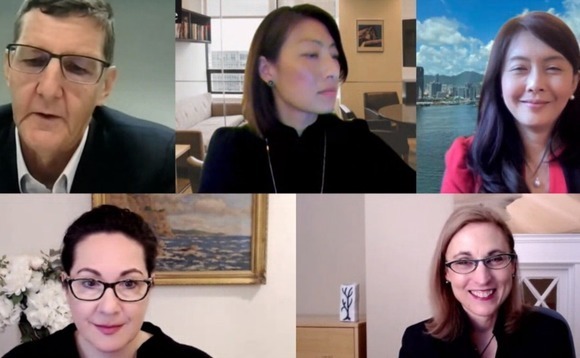
Diversity, inclusion agendas require patience - AVCJ Forum

Executing a diversity, equity, and inclusion (DEI) agenda in private equity requires intentionality, multiple areas of focus, and above all time, given the apprenticeship nature of the industry, the AVCJ Diversity & Inclusion Forum heard.
"There is a constellation of factors – there is no silver bullet or one or two action points," said Victoria Budson, senior vice president and global head of DEI at Bain Capital. "We have to develop an approach for the industry that demystifies what it is to go into private equity."
Most global private equity firms have launched a range of initiatives spanning recruitment, mentorship, and affinity groups. However, Kara Helander, a managing director and chief DEI officer at The Carlyle Group, noted that these efforts cannot be expected to deliver immediate results.
Carlyle claims that 50% of its assets under management (AUM) are led or co-led by women, but this "did not happen overnight," Helander said. "It takes time, and it takes intention. But I have seen that intention much more clearly in the past couple of years than before."
This filter-through effect is evident in recruitment. Nearly half of The Blackstone Group's latest analyst class in the US are female and half are racially diverse. The uptick is linked to college outreach programs aimed at educating women on the range of work opportunities within private equity. Every year, sophomore students from the US, UK, Greater China, and India are invited to participate in two-day seminars at the firm's offices.
"They get to meet people at Blackstone across different functional roles to give them a sense of what a career in private equity can look like," said Carol Kim, head of institutional client solutions group in Asia at Blackstone. "There is a misconception that it is all analysis and deals. Many women opt out based on that, without realizing there are many roles in private equity and in finance more broadly."
Retaining female talent is an ongoing challenge for private equity firms, with Amy Fong, COO of FountainVest Partners, pointing to high drop-out rates at vice president and director level. This has prompted private equity firms to be more mindful of career development.
Fong observed that women who choose to leave the industry, whether it is to launch their own businesses or focus on family, should be encouraged to return. "We want to have staff with multiple talents," Fong said. "Going into an entrepreneurship role and then coming back will enrich our organization in the long run."
Mentorship and affinity networks are regarded as essential to retention. More than 600 people at Carlyle are in mentor relationships, and a specific program was launched to address a lack of diversity at vice president level. Senior-level executives are assigned to individuals and help define career development plans, identify opportunities, and then advocate for those individuals.
The importance of senior-level involvement was emphasized by multiple speakers at the forum. Each of Bain's affinity networks is anchored by someone from the firm's leadership group, with Budson noting that DEI initiatives are ineffective without "leaders who are present, who come and listen."
"Before I took this job, I interviewed the CEO to understand what partnership I could expect from him," Helander said, adding that Kewsong Lee, Carlyle's current CEO, has a compensation package that is partly linked to the achievement of diversity goals.
Leaders are also expected to articulate why these goals make sense, highlighting how diverse and inclusive teams usually have a clearer understanding of investments, which can lead to better decision-making. For Budson, swapping a career in public policy-focused academia for one in private equity was driven by an appreciation of the difference private investors can make on DEI.
"Our ability to change the experience for employees and break down barriers to multigenerational wealth is unprecedented," she said, pointing to the 200 companies in Bain's portfolio and the upstream and downstream supply chains that emanate from them.
Latest News
Asian GPs slow implementation of ESG policies - survey
Asia-based private equity firms are assigning more dedicated resources to environment, social, and governance (ESG) programmes, but policy changes have slowed in the past 12 months, in part due to concerns raised internally and by LPs, according to a...
Singapore fintech start-up LXA gets $10m seed round
New Enterprise Associates (NEA) has led a USD 10m seed round for Singapore’s LXA, a financial technology start-up launched by a former Asia senior executive at The Blackstone Group.
India's InCred announces $60m round, claims unicorn status
Indian non-bank lender InCred Financial Services said it has received INR 5bn (USD 60m) at a valuation of at least USD 1bn from unnamed investors including “a global private equity fund.”
Insight leads $50m round for Australia's Roller
Insight Partners has led a USD 50m round for Australia’s Roller, a venue management software provider specializing in family fun parks.







